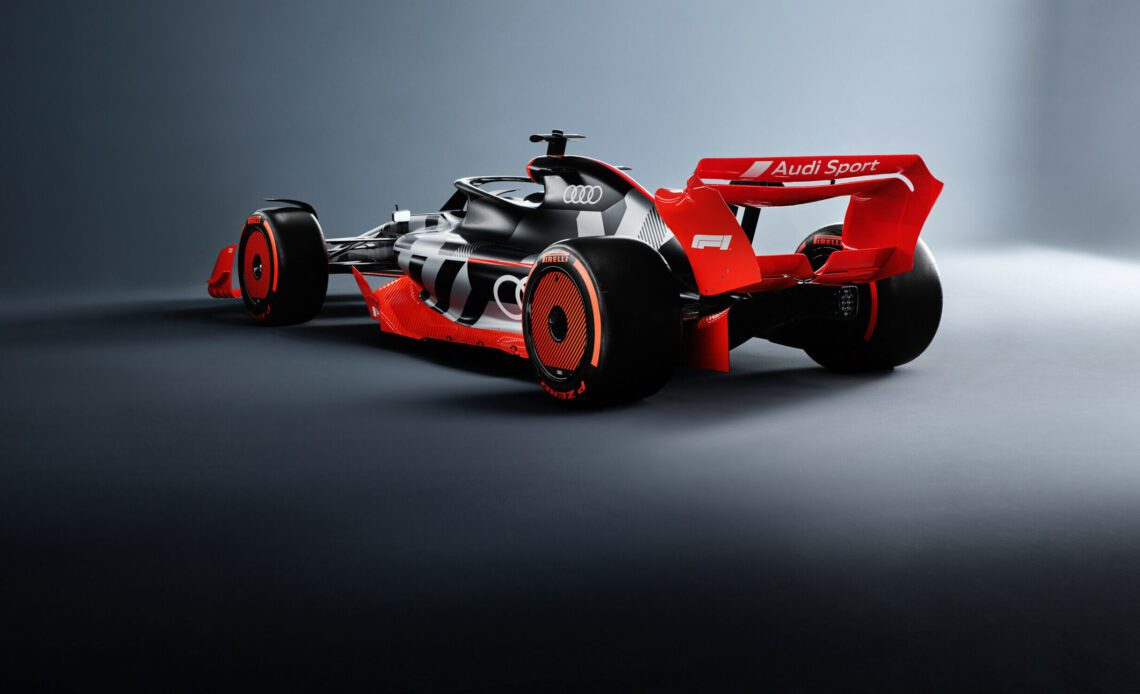Audi will enter the FIA Formula 1 World Championship as a power unit supplier from 2026, marking the first time in more than a decade that a Formula 1 power train will be built in Germany. The company’s motivation to join F1 derives from F1’s plan to become more sustainable and cost-efficient.
In early August 2022, the FIA World Motor Sport Council (WMSC) approved the 2026 Formula 1 power unit regulations. The 1600cc turbo V6 engines will remain essentially the same layout as now, with a similar RPM limit, though a new fuel flow rate will reduce power by approximately 36.5% to 400kW (536bhp).
The engine’s internal components, including reciprocating parts, pumps, and other ancillaries, will be subject to more tightly prescribed designs. The FIA will ban features such as variable inlet trumpets and a longer list of exotic materials to exclude many high-cost options.
Fuel injectors and many engine sensors will be standardised. The power unit regulations will include exhaust systems and other ancillary items, so they will be subject to penalties should they exceed their prescribed running life.
However, the combustion chamber will retain significant design freedom to promote clean combustion of the new-for-2026 100% sustainable fuel, which must be sourced from non-food bio sources, municipal waste or certified carbon capture schemes.
The electric power systems of the power units will change dramatically, including the removal of the MGU-H and an increase in output for the MGU-K. The removal of the MGU-H was something the VW group voted for as it felt it was hugely expensive to develop and thought it had little road car powertrain relevance.
The lack of the MGU-H will effectively necessitate the manufacturers’ redesign of the power unit as, amongst other things, they will lose the current control it affords over the inlet charge.
The 2026 electric power systems consisting of an electric motor, battery, and control electronics will increase sharply compared to today’s Formula 1 drive systems. The electric motor will be nearly as powerful as the combustion engine at 350kW output, and the battery and power electronics will be designed to accommodate this.
The Audi power unit will be built at Audi Sport’s Competence Center Motorsport in Neuburg an der Donau, near Audi AG’s company headquarters in Ingolstadt. In Neuburg, there are already test benches for F1 engine testing and electric motor and battery testing.
Additional necessary…
Click Here to Read the Full Original Article at Racecar Engineering…

